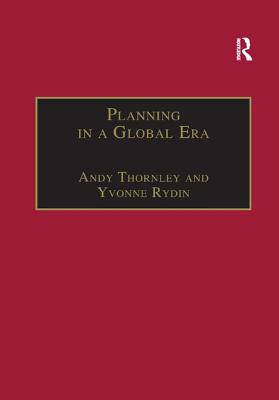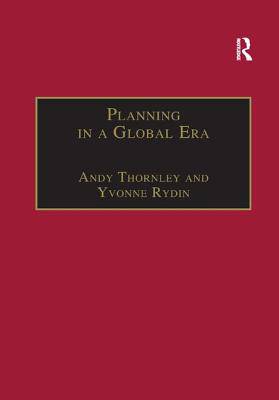
- Afhalen na 1 uur in een winkel met voorraad
- Gratis thuislevering in België vanaf € 30
- Ruim aanbod met 7 miljoen producten
- Afhalen na 1 uur in een winkel met voorraad
- Gratis thuislevering in België vanaf € 30
- Ruim aanbod met 7 miljoen producten
Zoeken
Omschrijving
Globalization was the buzzword of the last decade. Advances in communication technology, computing and air travel have all contributed to the establishment of what has been referred to as a 'network society' that encompasses the globe. Such arguments clearly have a significance on planning - an activity which has been concerned with controlling and shaping the use of space. This volume brings together contributions from across the world in order to address some of the questions that arise from such global changes. The opening section addresses the globalization debate directly, raising some theoretical issues and exploring the planning implications across a range of world cities. This is followed by an exploration of the way the theoretical debate about planning may need to advance to encompass contemporary forces. A number of more specific accounts addressing the need for adaptation are offered. The final section focuses on two aspects - housing and sustainability - which persist as 'wicked problems' and are likely to remain at the top of the agenda in the third millennium.
Specificaties
Betrokkenen
- Auteur(s):
- Uitgeverij:
Inhoud
- Aantal bladzijden:
- 416
- Taal:
- Engels
- Reeks:
Eigenschappen
- Productcode (EAN):
- 9781138263994
- Verschijningsdatum:
- 11/11/2016
- Uitvoering:
- Paperback
- Formaat:
- Trade paperback (VS)
- Afmetingen:
- 152 mm x 229 mm
- Gewicht:
- 599 g

Alleen bij Standaard Boekhandel
+ 140 punten op je klantenkaart van Standaard Boekhandel
Beoordelingen
We publiceren alleen reviews die voldoen aan de voorwaarden voor reviews. Bekijk onze voorwaarden voor reviews.











